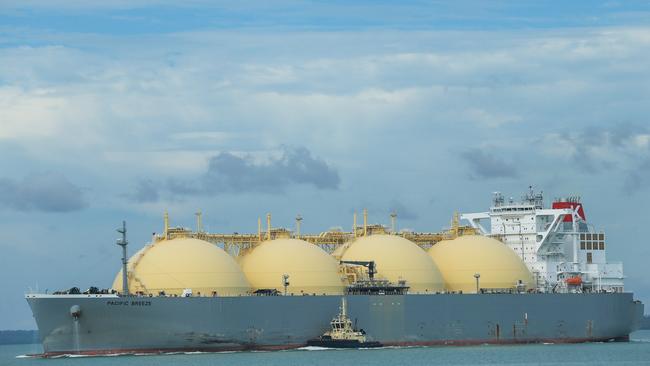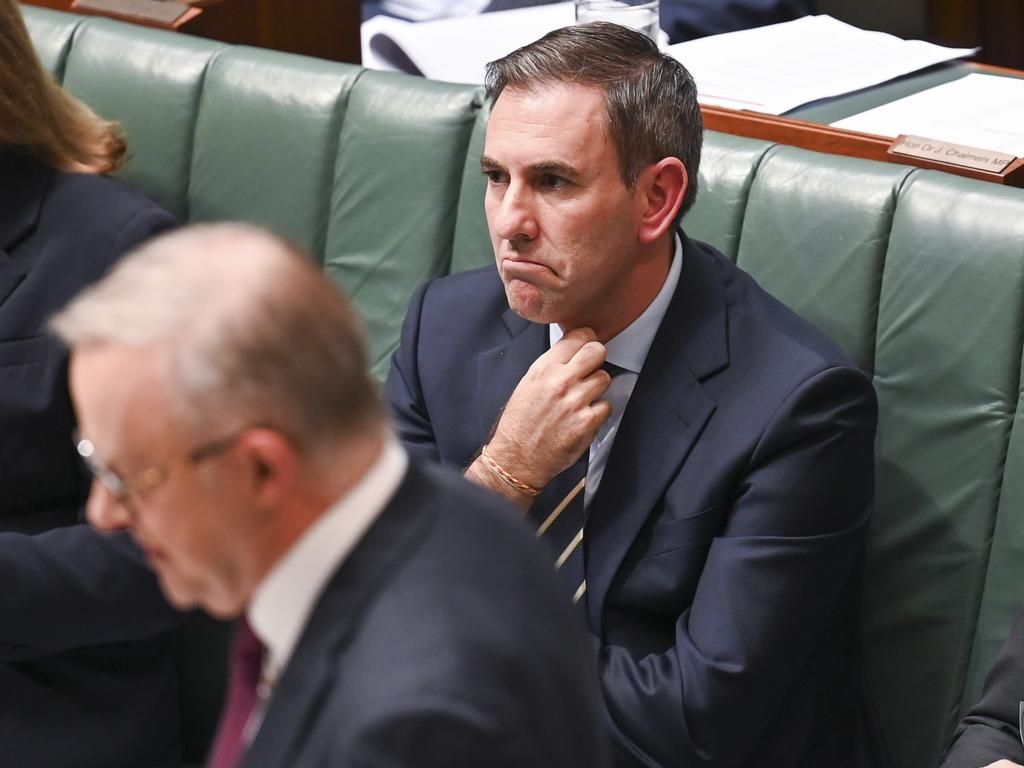Budget slashes ‘pathetic’ PRRT revenue by $750m
Labor’s success in passing its beefed-up PRRT has been undermined by budget figures showing Treasury expects to collect $750m less in revenue from the tax over the five years to 2028.

Labor’s success in passing its beefed-up petroleum resource rent tax through parliament has been undermined by budget figures showing Treasury expects to collect $750m less from the levy over the five years to 2028.
Independent economist Chris Richardson described Labor’s updated legislation as a “lettuce leaf” that “doesn’t add to the overall pathetic tax take on Australia’s gas”.
Against a comparable period in the mid-year fiscal update, the budget revised PRRT revenue down by 11 per cent in the four years to 2027, Mr Richardson calculated.
While Treasury blamed lower forecast oil prices for the sharp drop in the expected tax take, Mr Richardson pointed out that the budget downgraded the oil price by only 2 per cent.
He said his guess was that the big revenue downgrade was “the Bass Strait is closing down and it’s not paying PRRT, and all the new ones will never pay the PRRT”. “And no, the budget papers explicitly note the drop in the PRRT take was not due to the change in the timing of the lettuce leaf that recently passed (parliament),” he said.
The criticism from one of the country’s leading budget experts came as Anthony Albanese again defended the government’s increased cost-of-living support – particularly the $300 energy rebate for all households – saying billions in additional spending was not adding to inflationary pressures.
“It won’t be inflationary because it will take money off people’s bills. If we had to send out money, that would have had an impact,” the Prime Minister said. “Have a look at what the Reserve Bank have said in the past about our previous energy bill relief. If you reduce the costs of something that people are paying, you’re reducing inflation, you are assisting with cost of living.”
He said “Middle Australia will be substantially better off” thanks to last week’s decision to not target the $300 power bill subsidy to only the most vulnerable families. “They might be on a reasonable income, but they’ve had pressures on cost of living. They might have kids, a mortgage. And we wanted to, unashamedly, provide that support to Middle Australia,” he said.
The PRRT changes apply to offshore oil and gas projects, and limit what are widely seen as the overly generous deductions that companies can claim to reduce their tax liability.
The reform was supported by industry players, but had been stymied by the opposition, which had demanded the government loosen environmental hurdles for new oil and gas projects.
The updated law ultimately passed the Senate last week with support from the Greens and independent senators Tammy Tyrrell and Lidia Thorpe.
In return for that support, Labor agreed to shelve draft laws aimed at speeding up development approvals for new projects.
The budget papers show the delayed passage of the amended PRRT legislation had pushed the expected initial $400m in extra revenue from this financial year to the next.
Since the December’s mid-year fiscal update, tax receipts were revised down by $750m over the five years to 2027-28.
“The downgrade over the forward estimates is driven by lower oil prices than assumed at MYEFO,” the budget papers say.
“The downgrade to PRRT receipts in 2023-24, and subsequent upgrade in 2024-25, reflects the delay in the passage of legislation for the 2023-24 budget measure petroleum resource rent tax.
“This is only a change in timing and does not change the total expected receipts from this measure of $2.4bn from 2023-24 to 2026-27.”






To join the conversation, please log in. Don't have an account? Register
Join the conversation, you are commenting as Logout